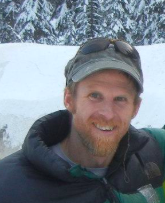-----------------------
We all know that something epochal hangs in the air.
Shrinking sea ice. Changing weather patterns. The price of oil has increased five fold since 2002. (Last week the US energy czar stated that recent spikes are a matter of supply and demand, meaning that peak oil is upon us.) In the face of population and economic pressures, commodity prices, especially food, are increasing rapidly. This threatens the world economy with dramatic recession, inflation, and harbors ill for the United States with its falling dollar. (What would America be like if a gallon of orange juice cost $15? What will America be like when the price of oil is $300 dollars a barrel and a gallon of gas costs $10?)
These things are happening whether or not we spend our time learning about them. They are also dramatically reshaping the world of our future and our children's future. Learning about this stuff is depressing, and as we increase our awareness of the challenges/potential catastrophes that await us, it is easy to become fearful and negative. To avoid these feelings, we usually choose to ignore what is happening beyond the scope of our daily lives. The problem with this is that it prevents us from accepting and confronting the fundamental realities that, to a great extent, determine to the context and content of daily life. Our individual denial is particularly pernicious when it leads to collective denial and, therefore, paralysis.
Much of the existent literature on issues such as peak oil, overpopulation and environmental challenges, including climate change, are either themselves pessimistic or can easily lead one to pessimism and cynicism. I do not think these reactions are inevitable or necessary because there are powerful reasons for hope. We have extremely advanced technology, the largest pool of knowledge any civilization has ever known, and the ability to disseminated it instantly to everyone we known through the Internet. With countless others I share the opinion that our assumptions about our own capacities and about what is possible are the greatest obstacles to human progress. While ignorance and inertia often dominate our lives, each of us knows that we also have the capacity to learn and grow and change. While most of history evidences the inability of groups to overcome their differences and unite, there are scattered instances when they have and, in doing so, achieved the 'impossible.' Humanity's heart can awaken, the mind can imagine solutions, and man's indomitable spirit can find a way. But we must act. We must learn about what lies beyond the scope of our lives. We must learn to connect the actions of our lives to larger patterns of cause and effect. We must change the ways we live as individuals. Over time small steps add up. The key is to focus on what we have learned and accomplished each day rather than being overwhelmed by all that we have left undone.
Attached is a PDF of a very short book (73 pgs.) entitled, Eating Fossil Fuels, which provides an excellent (and brief) overview of several issues at hand. I have also included the following links which are 20-30 minutes TED talks. Both are informative and incredibly inspirational.
http://www.ted.com/index.php
http://www.ted.com/index.php
Lastly, my friend Tommy and I plan to disseminate more information of this kind to anyone who is interested. If you are, please respond to this email. If not, I won't bother you any more about the future.
Thank you for your time.
-----------------------------
I, Jonah, would like to add that the book, "The Long Emergency" by James Howard Kunstler is one of the most influencial books I have ever read. He is a skeptic certainly--but his analysis of the problems we face in the upcoming decades is fierce and honest. I, like Joey, hope for the middle ground, a reprieve from the seemingly inevitable train wreck that looms before us. If you don't understand what this train wreck is, then I suggest you read and then decide for yourself.



![[eaward.jpg]](https://blogger.googleusercontent.com/img/b/R29vZ2xl/AVvXsEj416A5gjdZDcPE_qjtlcmQ9gig3x6pfDM5S5buyWdfyhquUGtCg-Xrzg6Oox1VyPXYptJ7iRZus8evwZO4bwpFvYO8mgF9GhAWxrxaE-2_dn7cYK7KtvsUmE5Oe8uDb3wfGfJmrw/s1600/eaward.jpg)
No comments:
Post a Comment